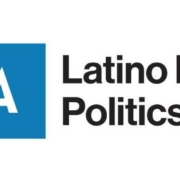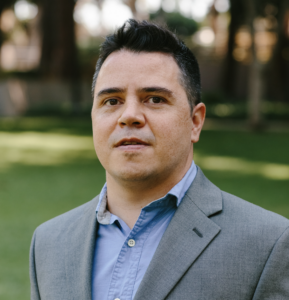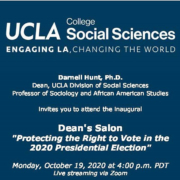LA Social Science recently interviewed Dr. Raúl Hinojosa, an Associate Professor in the UCLA Department of Chicana/o and Central American Studies and Founding Director of the North American Integration and Development Center (NAID), about his center’s conference on March 4 reflecting on its 25 years of research and innovation.
Interview Chapters:
00:20 – Welcome
01:05 – Dr. Hinojosa, please tell us about your conference “Empowering Diasporas to Address Root Causes: 25 Years of UCLA NAID Center Research & Innovation.” I understand it covered various areas of UCLA NAID Center research and policy innovation, which had three panels of research, policy, and community leaders from the US, Mexico, and Central America, highlighting recent publications and current pilot policy pilot projects.
07:11 – Perhaps you can tell us about the mission of the NAID Center and the highlights of its achievements over the past 25 years. Also, can you tell us about the first panel which I understand highlighted your book written about the North American Development Bank: historical trajectory and lessons learned?
15:57 – Can you tell us about the second panel designed to highlight a new policy monograph “Addressing the Root Causes of Migration,” to be published by the UCLA NAID Center and the DC based Migration Policy Institute? I understand you also unveiled UCLA NAID transnational data mapping website for online detailed geographic visibility in the US, Mexico and Central America. Also, what are the policy recommendations of the NAID-MPI monograph on Promoting the Reinvestment of Remittances and Migrant Savings for Addressing Root Causes of Migration?
26:00 – The third panel is entitled “Transnational Indigenous Empowerment,” which I understand highlighted a financial empowerment pilot project in San Quintin BC organized with Mexican Indigenous “microbanks” and local universities with the support of the NADBank. Can you also talk about how this conference is a part of future trajectory of the NAID Center? I understand the NAID Center, and partners are working on transnational migration and global climate change.
Subscribe to LA Social Science and be the first to learn more insight and knowledge from UCLA Division of Social Sciences experts and other faculty about upcoming video/audio sessions and posts about current issues.








